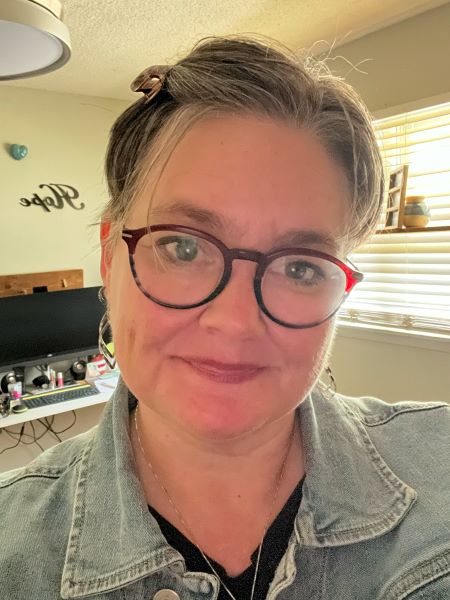by Hope
Well, I’m not where I want to be, where I planned to be, but I am further than I was.
Current student loan balance (as of 2/23/26) is $15,255.65.
Income dropped unexpectedly as one of my clients took an early retirement once he qualified for disability. I’ve gotten no hours for the last two months. Our contract still stands, but he’s backed way off.
My other contracts continue as they have, but this one was the bulk of my income in Q4 and this drop was completely unexpected.
Thankfully, this hasn’t affected anything except my debt payoff. I’ve not accrued any more debt. still going cash only, but I’m also being really cautious until I replace the income. Especially since I am in Q1 of a new business launch.
What am I doing about that?
I’m looking for new work – both W2 and 1099. I continue to apply for projects via Upwork. And recently joined a couple of local, in person business networking groups (free). I attended my first two meet ups this past Friday. In addition, I’ve been applying for remote only W2 positions, but am being very selective on that as caretaking for my parents in the priority still.
I’m not in the whoa is me state that I’ve been in in the past when work fell through, but I am in a rebuilding phase of my primary business contracts/projects again. The last year has been really, really solid though so I’m in a good place.
New Business Update
As I am launching my new business, which is not taking much or really any money at this point, just lots of time; I am just hoarding my income paying bare minimums on everything. I’m anticipating breaking even on the money invested in this new venture near the end of Q2 and hopefully *crossing my fingers, will begin seeing some profits in Q3. But that will all be re-invested. It’s really running on a skeleton tech stack and to take it to the next level, I’ll have to invest a little more money. But getting through this first year as lean as possible to prove proof of concept.
And long term, this should become relatively passive. Goals – at least!

Hope is a resourceful and solutions-driven business manager who has spent nearly two decades helping clients streamline their operations and grow their businesses through project management, digital marketing, and tech expertise. Recently transitioning from her role as a single mom of five foster/adoptive children to an empty nester, Hope is navigating the emotional and practical challenges of redefining her life while maintaining her determination to regain financial control and eliminate debt.
Living in a cozy small town in northeast Georgia with her three dogs, Hope cherishes the serenity of the mountains over the bustle of the beach. Though her kids are now finding their footing in the world—pursuing education, careers, and independence—she remains deeply committed to supporting them in this next chapter, even as she faces the bittersweet tug of letting go.
Since joining the Blogging Away Debt community in 2015, Hope has candidly shared her journey of financial ups and downs. Now, with a renewed focus and a clear path ahead, she’s ready to tackle her finances with the same passion and perseverance that she’s brought to her life and career. Through her writing, she continues to inspire others to confront their own financial challenges and strive for a brighter future.

